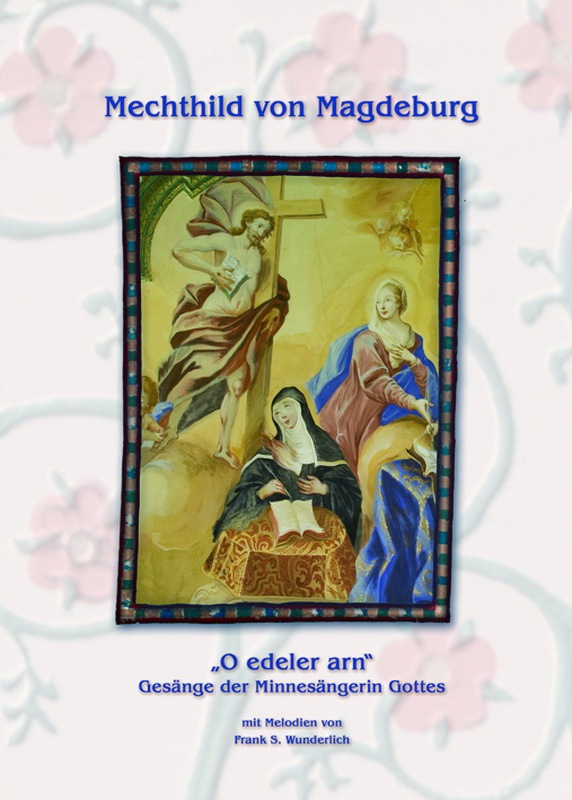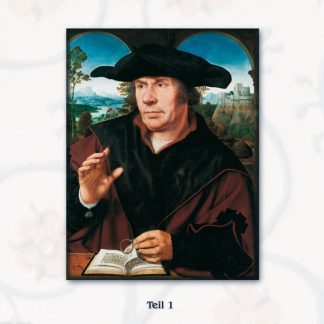Description
The beguine and mystic Mechthild of Magdeburg came from a wealthy, presumably high noble family from the area around Magdeburg or Halberstadt. She received a good education, which is expressed in the vocabulary and imagery of the courtly-knightly world.
At the age of twelve, she decided to pursue a spiritual life. Around 1230 she joins the poverty movement. Encouraged by her spiritual teacher, Heinrich von Halle, she writes down her mystical experiences.
There are six books of her only work: The Flowing Light of the Godhead in the form of dialogues, allegories, as well as Minnelyrik in the form of songs and chants. Around 1260, due to ongoing conflicts between the city clergy and the poverty movement, she initially returned to her family and was later accepted into the Cistercian community in Helfta. Around 1270, her seventh and last book is written.
This songbook contains ten songs in new settings – among others in the style of their predecessor Hildegard von Bingen. Minstrels sang about the desire for love from a male perspective. Here a woman takes possession of these forms of expression and thus Mechthild can rightly be called a minstrel of God.
The songs:
- I like to stumble from minnen (Book II 2)
- O noble arn (Book II 2)
- A song of sele zuo gotte (Book II 5)
- A contradiction of God (Book II 6)
- Of the lamentation of the minnende sele (Book II 25)
- From the bovmgarten (Book II 25)
- From two unlawful causes (Book IV 4)
- This is the lament of the minstrels (Book VII 31)
- A mountain I have seen (Book II 21)
- Appendix: Dy minne (cf. Book I 11)
Order no: 92-6
ISBN: 978-3-927240-92-6
Format: DIN A4
Number of pages: 40 pages
Cover: paperback






Reviews
There are no reviews yet.